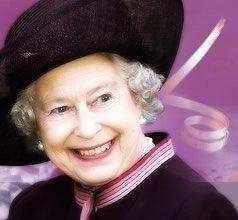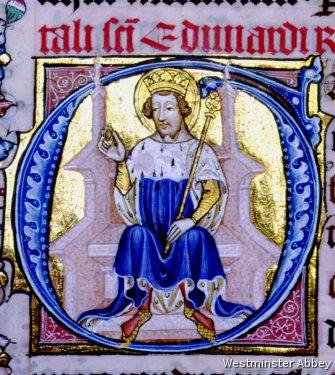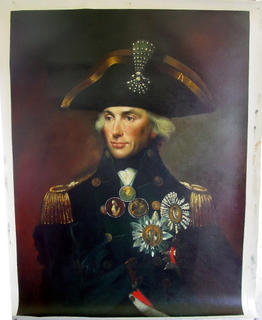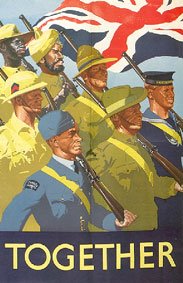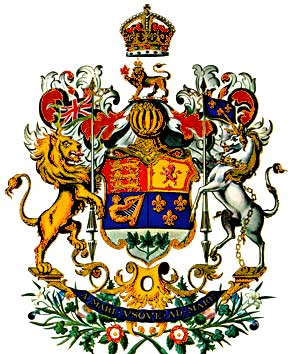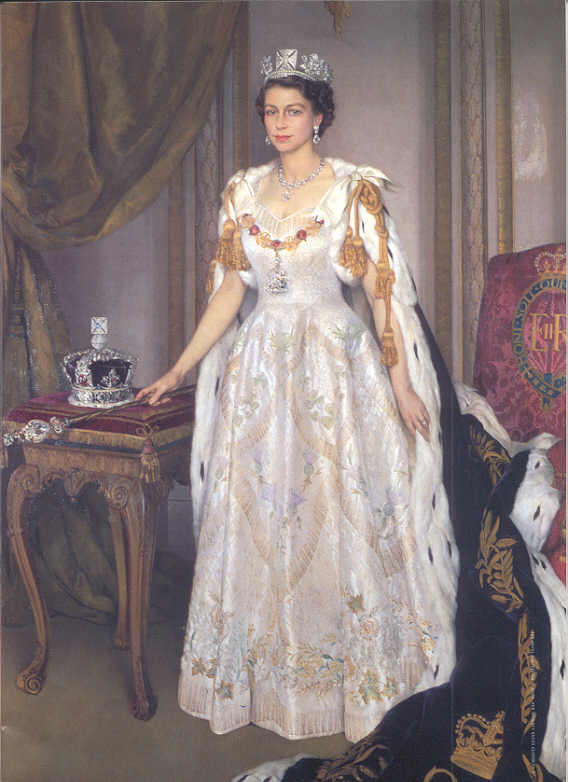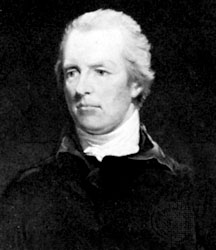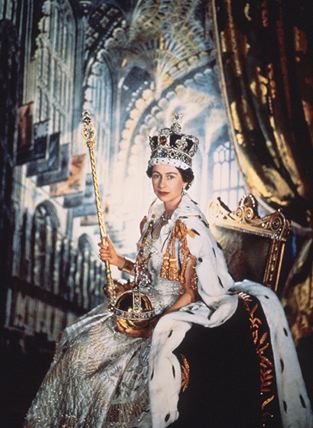[+] HONOURING OUR PATRON, SIR WINSTON CHURCHILL, VICTOR OF THE ENGLISH-SPEAKING PEOPLES
[+] HONOURING OUR QUEEN, ELIZABETH THE SECOND, ON THE 80TH YEAR OF HER BIRTH (1926 - 2006)
[+] HONOURING OUR KING, SAINT EDWARD THE CONFESSOR, ON THE 1000TH YEAR OF HIS BIRTH (1005 - 2005)
[+] HONOURING OUR HERO, LORD NELSON, ON THE BICENTENNIAL OF THE BATTLE OF TRAFALGAR (1805 - 2005)
[+] HONOURING OUR SONS, THE QUEEN'S COMMONWEALTH SOLDIERS KILLED IN THE 'WAR ON TERROR'
[+] HONOURING OUR VETS ON THE 150TH ANNIVERSARY OF THE VICTORIA CROSS (1856 - 2006)
John Ibbitson of the Globe and Mail might be a little slow off the mark on this one, given that Harper's speech in London was a full two weeks ago, but I like him because he appreciates the British connection.
 When he visited London, Stephen Harper gave a very important speech. The press focused on one line, in which the Prime Minister called Canada an "emerging energy superpower." But that wasn't the part of the speech that mattered. The important part came earlier, and some of it was truly astonishing.
When he visited London, Stephen Harper gave a very important speech. The press focused on one line, in which the Prime Minister called Canada an "emerging energy superpower." But that wasn't the part of the speech that mattered. The important part came earlier, and some of it was truly astonishing. Citing the British legacies of common law, parliamentary democracy and an open economy, Mr. Harper flatly declared that "much of what Canada is today we can trace to our origins as a colony of the British Empire."
It is unfashionable, Mr. Harper acknowledged, to speak of colonial legacies as anything other than oppressive. "But in the Canadian context, the actions of the British Empire were largely benign and occasionally brilliant." British magnanimity, he argued, ensured the survival of French culture. British approaches to the aboriginal population, "while far from perfect, were some of the fairest and most generous of the period."
The "bond of comradeship" between Canada and Britain was cemented in two world wars, Mr. Harper went on. "When Britain has bled, Canada has bled." Britain and Canada stood with their U.S. ally in containing the Soviet menace. And the English-speaking peoples are on the front lines in the global war against terror.
"Canada's new national government is absolutely determined, once again, to stand shoulder to shoulder with our British allies," the Prime Minister affirmed, "to stay the course and to win the fight." And he ended his speech: "God bless Canada, and God save the Queen."
Not since the days of John Diefenbaker has a Canadian prime minister said such things. Liberal prime ministers have portrayed the French and English heritage as equivalent, and multiculturalism as transcendent.
Conservative prime minister Brian Mulroney, though his foreign policy in many ways mirrored that of the current government, was Irish, from Quebec, and was at odds with Margaret Thatcher over South Africa.
But for Stephen Harper, Canada's interests today are fundamentally no different than they were in 1960, or 1940 or 1920. We are an integral member of an alliance of English-speaking democracies that confronted militarism, fascism and communism and prevailed, and that will prevail against terrorism as well.
That is why Mr. Harper stopped in London to visit with the Queen, Tony Blair and Lady Thatcher, before venturing on to the G8 summit. It is why he unequivocally supports Israel in its campaign against Hezbollah and Hamas, why he places less value on the counsels of European powers than on those of George W. Bush, Mr. Blair and Australian Prime Minister John Howard, why he eschews nuance and the Canadian legacy of serving as honest broker, in favour of another legacy: the legacy of Vimy Ridge and Billy Bishop, of Juno Beach and the Italian campaign, of NATO and NORAD.
Critics of Mr. Harper's foreign policy will find complete vindication of their fears in the London speech. They will point to the multiracial reality of modern Canadian society, to the complexities of contemporary statecraft, to decades of patient Canadian effort to build bridges, especially in the Middle East, that the Conservatives are now burning.
But Mr. Harper is right to remind Canadians that the British legacy of freedom, democracy and rule of law is precisely what draws millions of people around the world to our shores.
He is right to anchor Canadian foreign policy in solidarity with our traditional allies.
And he is right to ignore those superior souls who wearily sigh that statecraft is too complex for amateurs and politicians to grasp, much less tamper with.
The Prime Minister's foreign policy may cost him votes in ridings he will need, if the Conservatives are to win a majority government. To that extent, Mr. Harper is pursuing principle at the expense of politics. You might not like those principles, but you at least have to admire him for having some.
jibbitson@globeandmail.com
"The military honours bestowed upon me are the property of the men of my unit as well as myself and were obtained at considerable cost of the blood of this country. Under no circumstances could I consent to any material gain for myself for my services."
- Captain Charles Upham, Victoria Cross and Bar, one of only three recipients to have ever won the Victoria Cross twice. The other two being Lieutenant Colonel Arthur Martin-Leake (picture right) and Noel Godfrey Chavasse.
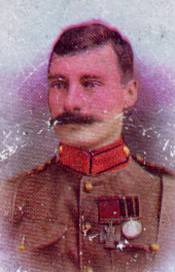 Those words and temperament of character from New Zealand's greatest war hero are ones that his three daughters are having just a tad difficulty living up to. We learn that they have received a million dollar offer from Australia and one worth almost three times that much from a British collector, and have given the New Zealand Government a chance to match it. I suggest the taxpayers of New Zealand cough up the cash because these three have obviously forfeited their right to hang such honour in their house, now that Charles Upham has died (he passed away in 1994). Besides, the price seems to be what the market can bear, since we also learn the other day that the VC of Australia’s most decorated Gallipoli veteran, Captain Alfred Shout, fetched the record price of $1 million (AUS). So I suppose it stands to reason that inheritors of a double VC should get at least double the cash.
Those words and temperament of character from New Zealand's greatest war hero are ones that his three daughters are having just a tad difficulty living up to. We learn that they have received a million dollar offer from Australia and one worth almost three times that much from a British collector, and have given the New Zealand Government a chance to match it. I suggest the taxpayers of New Zealand cough up the cash because these three have obviously forfeited their right to hang such honour in their house, now that Charles Upham has died (he passed away in 1994). Besides, the price seems to be what the market can bear, since we also learn the other day that the VC of Australia’s most decorated Gallipoli veteran, Captain Alfred Shout, fetched the record price of $1 million (AUS). So I suppose it stands to reason that inheritors of a double VC should get at least double the cash.Only it doesn’t stand to reason. The Victoria Cross is priceless. It is first in the order of precedence, ranking higher than any order of chivalry, be it the Order of Canada, the Bath, the Garter, be it the Supreme Order of Christ. I submit that if there is one thing worse than cash for peerages, it is cash for VCs. Granted the buyers and sellers of VCs are not, as such, trading in honours (they are not paying to be a VC holder, only to own the VC), but it’s still not keeping in the spirit of the medal’s true value. The Victoria Cross is no mere trinket. The British Commonwealth’s highest award for valour and gallantry “in the face of the enemy” represents the life and blood of nations. It is sacred. It should not be for sale.
King George V felt so strongly about this, he ordered that no matter the crime, no authority could ever strip a man of his VC, commenting that a recipient should still be permitted to wear the decoration even if he were on the gallows. (His Private Secretary stating in a letter the King's view that:"no matter the crime committed by anyone on whom the VC has been conferred, the decoration should not be forfeited. Even were a VC to be sentenced to be hanged for murder, he should be allowed to wear his VC on the scaffold.")
Had he the foresight, Emperor George would no doubt have widened this policy to forbid the auctioning off of VCs too, much as one cannot auction off one’s citizenship. We cannot sell our passport because we do not own it; we are merely passport holders. Ditto for the Victoria Cross. Recipients of the VC are often described as winners or holders of the award, not owners. The comparison is valid, I think, since heroism in the face of a nation’s enemies represents the highest act of citizenship. It seems to me that there is a special responsibility to protect the dignity of these gallant acts, and not cheapen them by selling them off to the highest bidder.
The grandson of Alfred Shout, Graham Thomas, who sold the medal last week, said keeping the VC in his family home had become too much of a responsibility. He also needed the funds to help his children and grandchildren, and to pay medical bills. "Anyway, I think Captain Shout would support my decision to sell it to support his descendants".
Too much of a responsibility. Well, Captain Shout certainly knew a lot about responsibility, not to mention the sacrifice responsibility sometimes requires. Not sure hanging a VC on your wall of honour constitutes a grave responsibility or an immense joy, but I’m thinking the latter more than the former. As for the brave soldier somehow agreeing from his grave with the decision of his grandson to get rich off his heroism by selling the family jewels to a private collector, I’d have to say don’t think so. It is more likely that Graham is expressing seller’s remorse and is conveniently trying to lessen the guilt he feels for his actions.
But all of this is important now not because of principle alone. It so happens that this year, the 150th year of the Victoria Cross, we continue to find ourselves in the thick of our still unfolding history. Last week, the Americans, Brits and Canadians were engaged in pre-dawn offensives against hundreds of Taliban. Obviously we are still carrying out operations “in the face of the enemy”. We are witnessing our soldiers being killed on a weekly basis, meaning that the winning of a VC is still very much within the realm of possibility. All this is to say that soldiers are required to wear their medals when in uniform. For them, selling them is not an option. So why should it be an option for their offspring? Why should those who buy it be able to sell it again for even more? Why should a man profit from another man's courage?
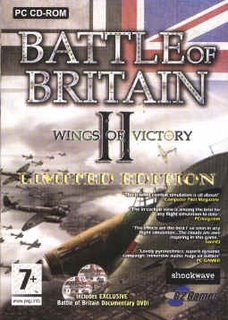 I couldn't be more proud of our brave boys in Afstan. While we live our merry lives in peace and prosperity, their lives are being snuffed out on a weekly basis. Another two Canadian soldiers dead today (Cpl. Francisco Gomez, 44, of the Princess Patricia's Canadian Light Infantry, based in Edmonton, and Cpl. Jason Patrick Warren, 29, of the Black Watch, the Royal Highland Regiment of Canada, based in Montreal) in double suicide bombs near Kandahar, along with eight wounded. With 20 killed to-date (most of them in the first six months of this year), we now have the highest number of combat dead in that country after the Americans - higher than the Germans and Brits. Still, the toll is nothing compared to the hundreds of civilians who are killed every week in the Middle East. And it's nothing compared to the 50,000 Canadians we are currently evacuating from Lebanon!
I couldn't be more proud of our brave boys in Afstan. While we live our merry lives in peace and prosperity, their lives are being snuffed out on a weekly basis. Another two Canadian soldiers dead today (Cpl. Francisco Gomez, 44, of the Princess Patricia's Canadian Light Infantry, based in Edmonton, and Cpl. Jason Patrick Warren, 29, of the Black Watch, the Royal Highland Regiment of Canada, based in Montreal) in double suicide bombs near Kandahar, along with eight wounded. With 20 killed to-date (most of them in the first six months of this year), we now have the highest number of combat dead in that country after the Americans - higher than the Germans and Brits. Still, the toll is nothing compared to the hundreds of civilians who are killed every week in the Middle East. And it's nothing compared to the 50,000 Canadians we are currently evacuating from Lebanon! But let's remember, those 20 are different. When we and our Allies win this war, Churchill's words will still ring true: Never before in the history of human conflict have so many owed so much to so few. Most in the media don't think we can win this one, and they might be forgiven for thinking that way, just as they were in Churchill's day. For in Lebanon right now, we're experiencing our very own Dunkirk. As it was in the Europe of June 1940, all seems lost in the Middle East. Like the France of WWII, Lebanon has effectively been highjacked by the Iranian and Syrian Nazis, with Vichy Hezbollah, their Nazi collaborators, controlling much of the southern country. The West, through Israel, is engaged in the equivalent of the Battle of Britain, a battle that will carry on for a number of weeks to come, until every last Hezbollah rocket battery is located and destroyed. Unfortunately for the Israelis, the V2 came early in this war, thanks to Nazi Iran.
But luckily Israel, unlike the British Commonwealth in 1939, 1940 and 1941, will not be alone this time. The Americans had their Pearl Harbor at the outset of this war, and have been taking it to the enemy ever since 9/11. The Nazi enemy might believe that the Americans are completely bogged down in Iraq, Afghanistan and North Korea, but so too did they make that mistake of the Yanks in the Pacific against the mighty Japanese. Japan and their Kamikazee suicide bombers were a tough nut to crack - so too will Iraq and Afghanistan and North Korea.
It is clear that our "friend" and "Ally", Pakistan, is completely infested with the tyranny we are fighting elsewhere. Much as we did with our friend and Ally, the Soviet Union, following the collapse of Berlin, it will be imperative to contain Pakistan from spreading its disease across its borders to neighbouring countries. Pakistan with its 200 million people, is unfortunately a lost cause, and should be written off for the next fifty years.
Like Nazi Germany, it is clear that Nazi Syria and Nazi Iran cannot now be left alone on the basis of their force of stability in the region. Obviously, they are the creators of the world instability we are now suffering, and as such, need to be dealt with before it is too late.
Where have all the Great Britons gone? You know, we go through this every year the G8 meets. And it’s always some pro-European little Englander who says something along the lines that Canada is geopolitically insignificant and does not deserve to sit with the Great Powers at the exclusive summit. This year, it’s the Guardian’s Larry Elliott in “Giving good summit”, as in he will deeply miss Jacques Chirac, because “you have to admit he’s a class act…this man does good summit”. On the other hand, “Canada and Italy have no business being in the G8, so nobody really cares what Stephen Harper or Romano Prodi thinks.” And Russia deserves to be because of “all that lovely oil and gas”.
Whatever, Larry. Ignorance may be bliss, but I suggest you check your facts, starting with the world's 15 largest proven oil reserves (estimated in billions of barrels):
 264.3 Saudi Arabia (OPEC)
264.3 Saudi Arabia (OPEC)178.8 Canada
132.7 Iran (OPEC)
115.0 Iraq (OPEC)
101.5 Kuwait (OPEC)
97.8 UAE (OPEC)
79.7 Venezuela (OPEC)
72.4 Russia
39.6 Kazakhstan
39.1 Libya
35.9 Nigeria
29.3 United States
17.3 Europe
16.0 China
15.2 Qatar (OPEC)
As you can see, the G8’s future energy security (add China and India) will be largely dependent on Canada, particularly if things turn for the worse in the Middle East. Obviously, we are the only serious non-OPEC country (along with Russia) with proven massive deposits. The United States already imports more oil and gas from the Province of Alberta than they do from Saudi Arabia. If petroleum is your yardstick for inclusion into the G8, seems to me you might want Canada to be at the table. Mind you, if the desire is for the Great White North to be set up as an oil cartel for use by the G8, then I’m thinking we would not be interested.
But I think Larry misses the point about the G8. It’s a gathering of the largest economically developed nations in the world. At $US 1.3 trillion in GDP (est. 2007), Canada happens to have the world’s 8th largest economy, Russia down at number 11 (see below figures for top 15 countries). If anything, Russia should be kicked out in favour of China, who is number four currently. But Russia, like Canada, has the richest natural resource base on the planet, and given the demand for resources these days, an argument can be made that large economies like the United States and China are nothing without the resources to fuel those economies. Canada and Russia are clearly the world’s two greatest Resource Powers.
 13.94 United States
13.94 United States4.57 Japan
2.85 Germany
2.82 China
2.37 UK
2.17 France
1.81 Italy
1.31 Canada
1.23 Spain
1.11 Brazil
1.05 Russia
0.95 Korea
0.93 India
0.89 Mexico
0.76 Australia
Now, I’m not going to come to the defense of Italy here, because quite frankly there’s way too many demographically declining European countries already in the G8. The bureaucratically sclerotic and demographically sick European Union is way overrepresented. That in of itself, means there’s no way the United States would ever support kicking out their only North American partner. Nor should Great Britain. Why the hell would Larry be supporting France, Germany and Russia over Canada? Time and time again, no matter the issue, Britain has allied itself with those on the other side of the pond, not the other side of the Channel. But these little Englanders now think their future is with Europe. Little England may have a future as a province of Europe, but not as a member of the G8. That place is reserved exclusively for Great Britain.
 This may come as a surprise to my readers, but as a lifelong conservative I do pray for the salvation of the Liberal Party of Canada. My Tory colleagues are having difficulty resisting the temptation and pusillanimous belief that ethically challenged and kiddy-gate Librano, Joe Volpe, would make a good Prime Minister-in-waiting, on the basis that such an outcome would improve the prospect of a Tory majority in the next election. They ought to know that that kind of reckless hoping is too dangerous for the future of our children.
This may come as a surprise to my readers, but as a lifelong conservative I do pray for the salvation of the Liberal Party of Canada. My Tory colleagues are having difficulty resisting the temptation and pusillanimous belief that ethically challenged and kiddy-gate Librano, Joe Volpe, would make a good Prime Minister-in-waiting, on the basis that such an outcome would improve the prospect of a Tory majority in the next election. They ought to know that that kind of reckless hoping is too dangerous for the future of our children. Let’s get a grip. Limousine Liberals like Joe Volpe have no place leading our country, not even the prospect of leading it. A major reason why Canada is swiftly raising its standing in the world is our return to a competitively healthy and predominantly two-party democracy. That, and a return to intelligent leadership – albeit, not yet on both sides of the political aisle.
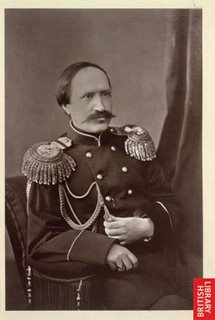 Which brings me to current Grit hopeful, Michael Ignatieff, the grandson of a Russian aristocrat. This guy is a shock to the Liberal flock. He’s what I would call a politically correct or highly nuanced imperialist, one who actually sways to the right of Harper on many important areas of foreign policy. It may no longer be the White Man’s Burden, but it still is very much The Burden. Ignatieff is Kipling lite.
Which brings me to current Grit hopeful, Michael Ignatieff, the grandson of a Russian aristocrat. This guy is a shock to the Liberal flock. He’s what I would call a politically correct or highly nuanced imperialist, one who actually sways to the right of Harper on many important areas of foreign policy. It may no longer be the White Man’s Burden, but it still is very much The Burden. Ignatieff is Kipling lite.He was a prominent supporter of the 2003 Invasion of Iraq, arguing that America had inadvertently established "an empire lite, a global hegemony whose grace notes are free markets, human rights and democracy, enforced by the most awesome military power the world has ever known." The burden of that empire obliged America to expend itself unseating Iraqi president Saddam Hussein in the interests of international security and human rights.
Other shocks. He’s an unapologetic advocate for the construction of a ground-based North American Missile Defence Shield (and he’s a Liberal?); he believes that the U.S. should militarily impose a two-state solution in the Middle East, which speaks to a boldness that would escape even Bush (and he’s a Liberal?); he even makes a case for torture under the right circumstances, taking a lesser evil approach in dealing with suspected terrorists (Picture: Captured terrorist knows a nuke will take out Manhattan in three days. What’s more important? Respecting the terrorist’s human rights or extracting the information needed to save millions of people?). And he’s a Liberal?
In many ways, Ignatieff is the very antithesis of the Liberal beast he wants to lead. If he is the apparent frontrunner, it would certainly have nothing to do with his worldly views, but more to do with the Lib’s unquenchable lust for power. Many probably feel he represents the only plausible chance of defeating Harper, and so he finds considerable support.
But this logic, like so much of Liberal logic, escapes me. By getting Ignatieff as Leader of Her Majesty’s Loyal Opposition, it is much more likely, in my view, that more Liberal voters would be alienated than Conservatives gained. The Tories are very happy with Harper and will not be leaving anytime soon. The socialists would also be happy - ecstatic - if a future election became a contest between Harper and Harper lite. All the Liberals would gain is principled, thoughtful and intelligent leadership. Come to think of it, I can see how the Grits might not be that happy.
Well, we certainly never expected to be number one on Google. It would appear we rank higher than all the monarchist leagues even. All of them. Perhaps it's because they long ago gave up on keeping alive the grandiose vision of a united British Commonwealth Monarchy, and we've effectively cornered the market on that.
Because far from ensuring its perpetuation in this humble scribe’s opinion, the inward-looking efforts of the monarchist leagues and their smaller chapters across the Commonwealth have devalued the monarchy by promoting a limited, insular and nationalist view of it. By compartmentalizing the crown into national silos, by jealously carving it up into smaller pieces instead of sustaining its grander whole, they have diminished the prestige and patriotism that was once the embodiment of our shared British Commonwealth Monarchy.
It is not the Canadian Monarchy, not the English, not the Australian, not the New Zealand, not the Jamaican, not even the United Kingdom Monarchy. The Commonwealth Crowns, including the Crown in right of the United Kingdom, are represented by the British Monarchy. No other monarchy in our tradition exists.
This speech by Prime Minister Harper yesterday in London following his meeting with the Queen is telling. It goes to show, I think, just how wrong Liberals were all along to characterize Harper as an American style neo-conservative out of touch with his own country. What this address amply illustrates is precisely the opposite. No prime minister in recent memory has been so eagerly inclined to understand and respect the history, traditions and institutions of Canada than this one. We learn the full measure of the man - who clearly is a conservative loyalist - in the abbreviated text below:
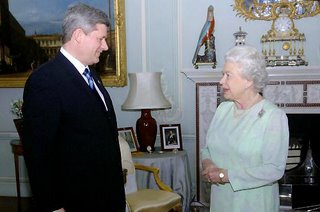 Ladies and Gentlemen, this is actually my first speech to a business audience outside Canada since becoming Prime Minister. And it is only fitting that it’s to your distinguished organization. Because the Canada-UK Chamber has been promoting commerce between our nations for almost 90 years. And because the business relationship between our countries dates back to the very founding of Canada. In fact, for two centuries prior to our confederation in 1867, much of Canada was effectively owned, operated and governed under the red ensign of a London-based corporation, the mighty Hudson’s Bay Company. Our co-sponsor tonight, the Canada Club, owes its founding in 1810 to the fur traders of the North-West Company, the main rival and eventual partner of the HBC. Still, business is but one aspect of our combined history. That history is built by layer upon layer of common experiences, shared values and ancient family ties. In my own case, the Harper family traces its known forefathers back to the northern England and southern Scotland of the 1600s.
Ladies and Gentlemen, this is actually my first speech to a business audience outside Canada since becoming Prime Minister. And it is only fitting that it’s to your distinguished organization. Because the Canada-UK Chamber has been promoting commerce between our nations for almost 90 years. And because the business relationship between our countries dates back to the very founding of Canada. In fact, for two centuries prior to our confederation in 1867, much of Canada was effectively owned, operated and governed under the red ensign of a London-based corporation, the mighty Hudson’s Bay Company. Our co-sponsor tonight, the Canada Club, owes its founding in 1810 to the fur traders of the North-West Company, the main rival and eventual partner of the HBC. Still, business is but one aspect of our combined history. That history is built by layer upon layer of common experiences, shared values and ancient family ties. In my own case, the Harper family traces its known forefathers back to the northern England and southern Scotland of the 1600s. But a far greater orator than I - or any Harper of the past 400 years - once described Canada-U.K. relations this way: The ties which join [Canada] to the mother country are more flexible than elastic, stronger than steel and tenser than any material known to science. Canada bridges the gap between the old world and the new, and reunites the world with a new bond of comradeship. The speaker, as you might have guessed, was the incomparable Winston Churchill.
The occasion was a speech in Ottawa in 1929, part of a cross-country tour of what he called “the Great Dominion.” He gave 16 speeches in 9 cities. Every one of them was delivered to sold-out rooms and repeated standing ovations. On that same tour, Mr. Churchill reminded Canadians of what they owed to Britain. At the heart of our relationship, he said: “is the golden circle of the Crown which links us all together with the majestic past that takes us back to the Tudors, the Plantagenets, the Magna Carta, habeas corpus, petition of rights, and English common law… all those massive stepping stones which the people of the British race shaped and forged to the joy, and peace, and glory of mankind.”
How right he was. Britain gave Canada all that – and much more. Including: Parliamentary democracy; a commitment to basic freedoms; the industrial revolution; and the entrepreneurial spirit and free market economy. Not to mention Shakespeare, Dickens, Kipling, Lewis, and Chesterton. Much of what Canada is today we can trace to our origins as a colony of the British Empire. Now I know it’s unfashionable to refer to colonialism in anything other than negative terms. And certainly, no part of the world is unscarred by the excesses of empires. But in the Canadian context, the actions of the British Empire were largely benign and occasionally brilliant. The magnanimous provisions of the Quebec Act of 1774 ensured the survival of the French language and culture in Canada - to the everlasting benefit of our country. And the treaties negotiated with the Aboriginal inhabitants of our country, while far from perfect, were some of the fairest and most generous of the period.
This genius for governance shown by the mother country at the time no doubt explains in part why Canada’s path to independence was so long, patient and peaceful. And it explains why your Queen is still our Queen, and why our “bond of comradeship” remains as sturdy today as it was in Mr. Churchill’s time.
That bond, ladies and gentlemen, was forged in bad times as well as good. Sometimes in the flames of war. When Britain has bled, Canada has bled. A generation of our young men share eternity with British Tommies in the fields of France. Another generation of Britons and Canadians fought side by side against Nazi fascism. Yet another helped our American cousins prevail over the menace of Soviet communism. And ever since that brief, illusory moment when we thought we were witness to “the end of history,” we have been allied in a new global conflict.
This is a conflict without borders. A conflict fought abroad and at home. A conflict in which the aggressor stands for nothing yet seeks to impose its will. Through the destruction of terrorism. Through the slaughter of the innocent. And through the perversion of a faith. So once more we face, as Churchill put it, “gangs of bandits who seek to darken the light of the world.” And once more we must appeal to our values, marshal our resources and steadfastly apply our will to defeat them.
This war on terror will not be easy. Nor will it be short. But it must be won. And Canada’s new national government is absolutely determined, once again, to stand shoulder to shoulder with our British allies, to stay the course and to win the fight.
Ladies and gentlemen, let me conclude by saying that I have no doubt that the “bonds of comradeship” Mr. Churchill talked about in the early 20th century will remain just as strong throughout the 21st. The “little island” and the “Great Dominion” are eternally bonded by language, culture, economics and values. That’s why our business relationships are so strong and successful and why they will only be growing stronger in the future. It’s why our troops are again serving side by side – this time in Afghanistan - defending freedom and building democracy. Why our intelligence services are working hand in glove to keep our homelands safe and secure. And why I am honoured to have had this opportunity to speak to your organizations today.
Thank you. God bless Canada and God save the Queen.
Rick Salutin tells us (“At the ready, but where’s the war?” July 7) that the CIA has declared that the leadership of Al Qaeda, formerly headquartered in Afghanistan, no longer constitutes a threat to Western security. If this is true, and if the CIA is right, I am relieved. However, I have a little trouble with where Salutin goes from there.
He tells us that the flourishing of Al Qaeda in Afghanistan during the late 1990s and the Taliban rule of that country during the same period were fundamentally unrelated circumstances (“they’d probably have dealt Osama to the U.S. for some aid and security”). He goes on to imply that the Taliban actually were, and presumably remain, a force for good (“they… had established a modicum of stability and had no international terror pretensions.”)
Interesting. It is, of course, possible that the geographical and temporal coincidence of the rise of the Taliban and that of Al Qaeda could have been simple accident. In considering the credibility of such a possibility, however, a few facts – unmentioned by Salutin – deserve citation. The rules and laws brought into general application in Afghanistan by the Taliban bear an astonishing resemblance to those advocated for worldwide application by Al Qaeda. To recall, those laws made refusal of fidelity to Islam a capital offence, and required women to abstain from education, employment, independent mobility, and appearance in public - except swaddled head-to-toe in cloth - on pain of corporal or worse punishment. Such a close similarity of ideology more than suggests a likelihood of mutual sympathy and aid. More practically: we know that the leadership of Al Qaeda and that of the Taliban did in fact share each others’ hospitality and resources, extending to intermarriage, and to fleeing, hiding and fighting together when the U.S. moved against Al Qaeda post-9/11. Further: quite contrary to Salutin’s claim, the Taliban in 2001 openly and defiantly affirmed their allegiance to Al Qaeda at precisely the moment when an opposite declaration and action would have secured to them boundless reward, rather than utter ruin, at American hands. As for the Taliban bringing “stability” to Afghanistan: if I not mistaken, many people around the world said the same of the Nazis and Germany during the 1930s.
Less important than Salutin’s interpretation of the past is his recipe for the future. His implied recommendation is that Canada and other nations should refuse the Afghan government’s request for continuing security assistance. Presumably Salutin understands that such a course would lead directly and promptly to the re-conquest of Afghanistan by the Taliban. What, I wonder, are the mechanisms Salutin imagines would guarantee a Taliban reversal of their past attitude toward civil society and civil rights (assuming he sees anything wrong with that attitude), and that international terrorism would not again be incubated under their noses? Ah, that’s right: no guarantees necessary. The Taliban are a force for good, and their apparent tolerance of Al Qaeda leaders and training camps was just coincidence - kind of like the Liberals and corruption. Perhaps Salutin’s interpretation of the past is relevant after all?
POSTED by WALSINGHAM and CROSS POSTED to THE TORCH
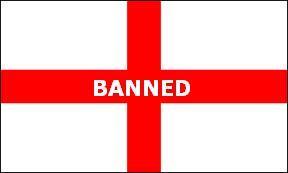 "A motion before General Synod in the Anglican Church has proposed elevating St Alban to patron of England. This is to get rid of St George, whom various Anglican clergy, starting with the pusillanimous vicar of St Matthew’s in Westminster, now consider to be too “militaristic”, too “foreign”, and crucially, “potentially offensive to Muslims”. A private members’ bill in the British House of Commons may also advance this cause."
"A motion before General Synod in the Anglican Church has proposed elevating St Alban to patron of England. This is to get rid of St George, whom various Anglican clergy, starting with the pusillanimous vicar of St Matthew’s in Westminster, now consider to be too “militaristic”, too “foreign”, and crucially, “potentially offensive to Muslims”. A private members’ bill in the British House of Commons may also advance this cause."You can read the rest of Saint George's poor treatment here. Mind you, Saint Alban is better than Saint Allah.
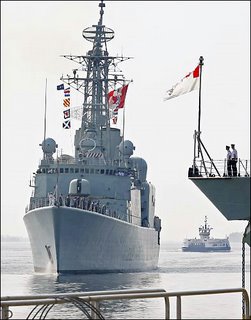 My former destroyer, HMCS Athabaskan, returned home yesterday to the port of Halifax after a six month NATO deployment. I miss my service days as a bridge watchkeeper. There was good and bad aspects to the job, mostly bad. Not many people get the privilege of driving a multi-billion dollar warship, so I certainly miss that aspect and the Titantic responsibility of keeping ship and crew safe. But people probably can't fathom spending months at sea, the fact that you live at work, the pressures on family, etc., so my heart goes out to all those sailors currently serving.
My former destroyer, HMCS Athabaskan, returned home yesterday to the port of Halifax after a six month NATO deployment. I miss my service days as a bridge watchkeeper. There was good and bad aspects to the job, mostly bad. Not many people get the privilege of driving a multi-billion dollar warship, so I certainly miss that aspect and the Titantic responsibility of keeping ship and crew safe. But people probably can't fathom spending months at sea, the fact that you live at work, the pressures on family, etc., so my heart goes out to all those sailors currently serving. Welcome home, boys and girls. You earned your stay. Bosun Mate: Pipe secure. The brow is open.
 Here's a link to the ship site.
Here's a link to the ship site.
 I had a bit of a tussle with columnist Lawrence Martin of the Globe and Mail just prior to going on vacation a couple of weeks ago. We jostled over his contention that Harper would deliberately stoke people's fears ("The fear card has been dealt - and Harper will play it") for political reasons, following the arrest of those 17 alleged terrorists. Here was our “venomous” exchange:
I had a bit of a tussle with columnist Lawrence Martin of the Globe and Mail just prior to going on vacation a couple of weeks ago. We jostled over his contention that Harper would deliberately stoke people's fears ("The fear card has been dealt - and Harper will play it") for political reasons, following the arrest of those 17 alleged terrorists. Here was our “venomous” exchange:Yours truly: "The fear card has been dealt - and Harper will play it. Well, is he playing it? Nice try, Larry. Wrong as usual".
Lawrence Martin: "The terror scare happened two weeks ago. It will take two years before we know how it has been played. So far in response he has already hiked security spending, as announced last week. As for wrong calls I recall getting dozens of angry e-mails from your type when I wrote repeatedly before the Iraq war that WMD was a total exaggeration, that it was threat inflation, an example of playing the fear card. So nice try."
Yours truly: "I thought WMD was total hype too, Larry, so "my type" was in agreement with you on that. Bush has aggressively played the fear card (the guy doesn't know the meaning of speak softly and carry a big stick), but 9/11 changed that country much more than it did the rest of us. But Harper is not Bush, as much as your type try to portray him as such. As far as I've seen since the terror arrests, Harper has been the picture of calm and restraint and reason (BTW, raising security spending does not count as playing the fear card). The only people who play the fear card well in Canada are the Liberals, who pulled every stop to fear the population out of voting for Harper in the last two elections. Nobody comes close to Liberal hysterics and fear-mongering. Not even Bush."
Lawrence Martin: "I guess you missed my two TV interviews in which I said Harper is off to the best first 100 days of any prime minister in half a century. And I guess you missed my column in which I said he should junk most of what the Liberals did. As for Bush, Harper, as you know, would have followed him right into Iraq had he been in power. So you're being rather selective in your analysis and for you to draw conclusions re. fear card on the basis of two weeks is, to be kind, sophomoric. As I say, it will take two years to tell. At that point, who knows, you might well find justification for your venomous e-mails."
And then unfortunately, I had to dash out to catch my flight to England. Now first of all, it’s rather convenient for him to want two years to prove his point: I’m not going to remember to get back to him on this one, nor is anyone else. Second, if Harper was going to play the fear card, one would expect to at least see some indication of this in the fresh aftermath of a foiled terrorist plot, more than in the months that follow, yet the Prime Minister has completely ducked the opportunity to peddle panic. But more importantly, two years strikes me as precisely the amount of time L.M. is unwilling to see Canada’s mission to Afghanistan extended, on the dubious grounds that it is an unwinnable quagmire (I guess we should have just walked out of the quagmires at Ypres, the Somme and Paschandaele too, and maybe the Jews should just leave Israel because their struggle is, you know, unwinnable). On something as crucial as our own national security (letting the Taliban re-occupy Afghanistan would clearly not be good for Western security, never mind for the long term safety of the indigenous population), he won’t give us the time of day to prove positive results. So forgive me if I’m a little reluctant to spare him the same on a more trivial test.
In any event, that’s not what perturbs me about dear old Larry. He belongs to that tiny elite in our outdated Liberal media (thankfully conservatives now dominate the media in Canada) who for the past thirty years have had their way plundering this country of its historical identity. His latest move on this front is his desire that we grow up and dump the monarchy. Now that’s Larry’s choice, and he’s free to lay out where he stands on our future, but get this. A couple of years ago, he was conversing with Prime Minister Chretien’s director of communications, Peter Donolo, trying to get him to comment on the Liberal’s position on the monarchy “off the record”. So Peter gets to chatting and next morning – presto! Liberals Consider Ditching the Monarchy front page story in the Globe and Mail. Now the whole country is supposed to engage in a debate on the monarchy, just because Peter and Larry got to talking over drinks and dinner? Peter later recounted how he thought he was in deep trouble with the PM, but Chretien only offered something to the effect of: “No worries, Peter. Let’s see what the people say”. And that’s a prime example of how Lawrence of Liberal-abia and the rest of the Liberal elite were able to influence the political agenda. All we peasants could do was watch.
Ordinarily I would quote a passage and provide a link, but the subscription firewall at the National Post is preventing me from doing this. Three days have now past since this column by Conrad Black was first published, which I hope is enough time to be now taking the liberty of providing the whole thing verbatim here for our Commonwealth readers who don't get the NP.
 Improbable though it may seem, the dowdy old Commonwealth could be a politically useful vehicle for Canada for collective political action.
Improbable though it may seem, the dowdy old Commonwealth could be a politically useful vehicle for Canada for collective political action.Canada does not wish to be subsumed into the United States, and resistance to such a fate has been the chief raison d’être of the country since a string of settlements along the U.S. border was first packaged together as a country in 1867.
Britain has clearly thought better of Euro-integration, to which Margaret Thatcher’s famous response – “No, no, no and never!” – has proved prophetic, though she was ejected largely by her own party for taking that position in 1990.
Australia and New Zealand are 7,000 miles from any countries with which they have much affinity, and the Australian attempt at immersion in Asia has been, to say the least, less than the sponsoring prime minister, Paul Keating, promised for it.
Vast India, the flourishing city state of Singapore and Malaysia, a middling nation in all relevant respects, are increasingly successful countries in search of international relationships with congenial and like-minded states, South Africa, by the standards of its region, is a Great Power, but would profit from association with some more advanced countries.
All these nations are in the Commonwealth, are essentially English-speaking, share the common law and are plausible democracies. Combined, their GDP is about US$4.5-trillion, with a strong growth rate. Even if India, especially, cannot be romanticized (its per capita annual income is only $728, corruption is rife and 100,000 farmers committed suicide in the last 10 years, the ultimate measurement of rural discontent), its potential and economic growth rates are impressive.
Great Britain has the world’s fourth highest GDP, Canada the seventh or eighth, India the ninth or tenth. Canada is rivaled only by Russia as the greatest treasure house of natural resources in the world, with Australia and South Africa not too far behind, and India is rivaled only be China as the world’s greatest economic growth prospect.
Complementary states no longer have to be geographically proximate to be usefully associated. Obviously, there could be no intimate association with the entire Commonwealth, which is infested with politically malignant and economically parlous states such as Zimbabwe, Mozambique, Gambia and Bangladesh. But a group composed of the most advanced and promising Commonwealth countries could be styled distinctively, let us say, the Association of Commonwealth States (ACS), and could adopt a custom-designed free trade agreement and a general political co-operation alliance – none of it infringing upon existing commitments of the U.K. to the EU, of Canada to NAFTA or of either country to NATO. The development policy priority, apart from the work needed to be done in member states (especially India and South Africa), would be in favour of less advantaged members of the old Commonwealth.
The British monarch could continue as sovereign of the United Kingdom, Head of the Commonwealth, and could be chief of state, or co-chief of state, of the countries that so desired, at present the old Dominions.
The quest for a united Europe has virtually collapsed. The overbearing Brussels bureaucracy is despised by everyone except the syndicate of European elites that dreams, especially in the smaller countries, of governing a continent.
All the participants of the EU value the relative civility of relations between their long-quarrelling countries, and the proportions of their trading zone. But it will not be possible to take Europe farther for a long time.
It is a notorious platitude that there is only one superpower in the world. Except for the Chinese and possibly the Indians, everyone defines themselves in contrast to the United States. Since neither the United States nor other countries wish federal union with the U.S., countries with innovative foreign policies will work across and between blocs to pursue alliances of common interest in historically different ways. Canada should take the lead in this.
An ACS would have the ability to reform the existing Commonwealth as a whole, and to trade concentrated development aid in retrograde Commonwealth regimes for improved domestic political structures and enhanced human rights. In exchange for increased development assistance, the more economically and politically primitive Commonwealth countries could also probably be induced to play a more constructive role in relaunching the UN.
While Canada would not be eligible to join the EU, we could seek associate status – as Switzerland, Norway, Iceland, Israel, Jordan and some South American countries already have. Because of Canada’s wealth, we would be eagerly embraced, and could then use our position to promote a two-tier Europe: political integration of those (if any) who want it, and lesser forms of co-operation for the rest.
This is what most British, and the majorities in many other EU countries, now seek. Again, the credibility gained from such a novel arrangement as the ACS, as well as Canada’s immense wealth and uncontroversial history as a country with no recent enemies, would enable us to play some discreet role even in European affairs (as Oxford’s Tim Garton Ash suggested in Toronto two weeks ago).
Canada should also explore the possibilities of some existing intra-Commonwealth institutions, such as joining the Australia-New Zealand economic association. These are all complicated, multilateral matters and nothing will be achieved without careful preparation. But Canada is, with China and India (albeit for very different reasons) the most swiftly rising power in the world. It has the capability of influencing the world positively, when most of the leaders of the traditionally leading countries lack energy and imagination.
A rapid escalation of Canada’s standing in the world will depend not only on the rise in value and demand of our resources, and the increase in our deployable military strength, but on our diplomatic originality – especially our ability to organize coalitions of countries seeking common and creditable objectives.
The Commonwealth is a venerable and underused institution, as much in need of reform and of a modern mission as the UN or NATO. Canada should offer it one. On this subject, it is fair, though not original, to ask ourselves: if not us, who; and if not now, when?
Got a fantastic view of the Millennium Dome too, which will apparently no longer be housing the Prescott Casino. Nothing like a little Labour corruption to stink up old London Town.


